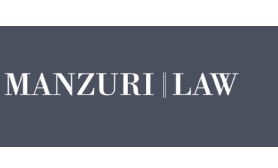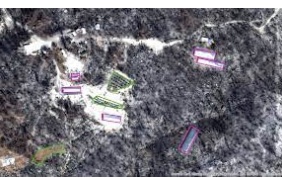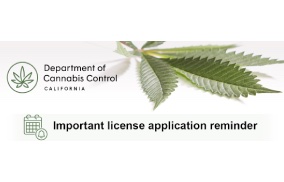Since 2010, Manzuri Law cannabis, CBD, and hemp attorneys in California have helped more than 200 businesses procure and/or maintain state and local industry licenses, making important licensing news a priority with our law firm.
Here is the latest on the Department of Cannabis Control (DCC) and the Los Angeles Department of Cannabis Regulation (LADCR) updates.
DCC Provisional Licensing Deadlines
The provisional licensing program in California is sunsetting within the next three years – January 1, 2026. This will be a significant change to the current California cannabis licensing process as licenses will be required to obtain an annual license. As such, current licensees and potential cannabis entrepreneurs need to stay abreast of the following licensing deadlines and ensure they are prepared for this transition.
Below are the key upcoming DCC dates:
- March 31, 2023 – This is the deadline for ALL local social equity applicants to submit a license application and be considered for a DCC provisional license. (Subject to change based on proposed legislation).
- June 30, 2023 – This is the last day for the DCC to issue provisional licenses to all local social equity applicants.
- July 1, 2023 – On this date DCC provisional license renewals become subject to additional regulatory requirements, including submitting documentation showing progress towards CEQA compliance. (More on this below)
- January 1, 2024 – This is the last day for provisional cultivation licenses to be issued that would result in an operation equivalent to a Type 5, 5A, or 5B license to be in effect.
- January 1, 2025 – This is the last day for the DCC to renew ANY provisional license type.
- January 1, 2026 – This is the final day for any DCC provisional license to be in effect. After this date, all licenses in the state of California will need to operate under an Annual license.
California Environmental Quality Act Compliance
As of July 1, 2023, all DCC license renewals must show progress towards compliance with the California Environmental Quality Act (CEQA). (More on this below)
Additionally, all annual license applicants will need to submit CEQA documentation as part of their initial licensing application.
As a reminder, CEQA is a state law passed in 1970 which requires an environmental review of certain proposed projects in the state of California.
The CEQA process aims to:
- Identify significant environmental impacts
- Avoid or reduce environmental damage
- Aid public participation
- Add transparency to government decisions
Typically, the local government agency acts as the Lead Agency, and DCC acts as the Responsible Agency. If the CEQA local process is discretionary, you will be required to prepare the necessary CEQA documents along with the local permitting application process. For instance, the LADCR now requires all applicants with Temporary Approval to complete DCR LIC-4013-FORM Project Specific Information Form.
The DCC has stated that progress towards compliance with CEQA can be shown through ONE of the following ways:
- The Lead Agency has prepared and circulated for public review a negative declaration or mitigated negative declaration;
- The Lead Agency has determined that an Environmental Impact Report (EIR) is required and has either:
- Made substantial progress in preparing an EIR, or
- Has a contract in place for EIR preparation;
- The Lead Agency certifies that it has conducted a reasonably comprehensive site specific review and deemed complete an initial study, addendum, or checklist to demonstrate the project is consistent with previously circulated and adopted negative declaration, mitigated negative declaration, or EIR;
- The Lead Agency has reviewed, prepared, and deemed complete a notice of exemption.
LADPH Emblem Program
The Emblem Program for Authorized Cannabis Stores is administered by the County of Los Angeles in partnership with contracted cities. This program is designed to validate and identify for consumers the legally operating stores within each city.
Cannabis operators will be required to have all appropriate licenses from all Government agencies (State and Local) in order to operate under the Emblem Program. Once approved, these Authorized cannabis operators will display a unique emblem on the store premises and will be required to provide health-related information accessible to consumers.
If you do not have a Public Health Permit and Emblem by 2024, you will not be eligible for renewal in the City of Los Angeles and will not be able to operate until you receive the Permit.
There are (3) Phases to obtain the required Permit, initially prioritizing Retail-Store Front licenses.
- Phase 1: Retail Store-Fronts: Licensees eligible for Phase 1 will receive an email from the DCR advising of their eligibility to apply. This period is open NOW – licensees can make an appointment with the DCR to conduct an inspection as soon as they are ready.
- Phase 2: All licensees and Applicants with Local Compliance Underway BY June 30, 2022. All commercial cannabis activities will be included in this round.
- Phase 3: New Applicants and Applicants with Local Compliance Underway on or AFTER July 1, 2022.
The process of obtaining the Emblem includes a thorough Site Evaluation, whereby Health Department Inspectors will assess a licensee’s compliance with the requirements of the program during their facility inspection.
Per the LAPDH, in order to pass the evaluations you MUST have ALL of the Critical Items present and functioning on the premises at the time of the inspection.
If you do not pass the initial inspection, additional fees will be added, you will be required to submit a corrective plan to the Cannabis Compliance Program and then you will be required to undergo a plan review process, which will delay the permit.
General & Non-Critical items are not necessary to pass the Site Evaluation but these items will need to be corrected before licensees can receive the Emblem Permit.
Employee and Patron Code of Conduct
The DCR now requires all licensees to draft and post both an Employee Code of Conduct and a Patron Code of Conduct. There are minimum standards that must be adhered to within both sets of Codes.
Remember to post the Employee and Patron Code of Conduct on the business premises in a conspicuous place
Important DCC and LADCR Licensing News


 Cannabis News1 year ago
Cannabis News1 year ago
 One-Hit Wonders1 year ago
One-Hit Wonders1 year ago
 Cannabis 1011 year ago
Cannabis 1011 year ago
 drug testing7 months ago
drug testing7 months ago
 Marijuana Business Daily1 year ago
Marijuana Business Daily1 year ago
 Education1 year ago
Education1 year ago
 Cannabis1 year ago
Cannabis1 year ago
 Education1 year ago
Education1 year ago

















